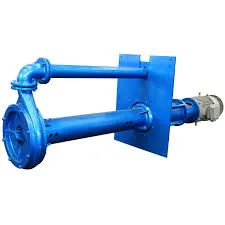Miao
- Afrikaans
- Albanian
- Amharic
- Arabic
- Armenian
- Azerbaijani
- Basque
- Belarusian
- Bengali
- Bosnian
- Bulgarian
- Catalan
- Cebuano
- Corsican
- Croatian
- Czech
- Danish
- Dutch
- English
- Esperanto
- Estonian
- Finnish
- French
- Frisian
- Galician
- Georgian
- German
- Greek
- Gujarati
- Haitian Creole
- hausa
- hawaiian
- Hebrew
- Hindi
- Miao
- Hungarian
- Icelandic
- igbo
- Indonesian
- irish
- Italian
- Japanese
- Javanese
- Kannada
- kazakh
- Khmer
- Rwandese
- Korean
- Kurdish
- Kyrgyz
- Lao
- Latin
- Latvian
- Lithuanian
- Luxembourgish
- Macedonian
- Malgashi
- Malay
- Malayalam
- Maltese
- Maori
- Marathi
- Mongolian
- Myanmar
- Nepali
- Norwegian
- Norwegian
- Occitan
- Pashto
- Persian
- Polish
- Portuguese
- Punjabi
- Romanian
- Russian
- Samoan
- Scottish Gaelic
- Serbian
- Sesotho
- Shona
- Sindhi
- Sinhala
- Slovak
- Slovenian
- Somali
- Spanish
- Sundanese
- Swahili
- Swedish
- Tagalog
- Tajik
- Tamil
- Tatar
- Telugu
- Thai
- Turkish
- Turkmen
- Ukrainian
- Urdu
- Uighur
- Uzbek
- Vietnamese
- Welsh
- Bantu
- Yiddish
- Yoruba
- Zulu
Telephone: +86 13120555503
Email: frank@cypump.com
Dec . 03, 2024 17:47 Back to list
effluent septic pump
Understanding Effluent Septic Pumps A Comprehensive Overview
Effluent septic pumps play a crucial role in the management and disposal of wastewater in residential and commercial settings that utilize septic systems. Unlike conventional sewage systems that transport waste to a centralized treatment facility, septic systems treat waste on-site. This decentralized approach has its benefits and drawbacks, one of which heavily relies on the efficient operation of effluent septic pumps.
What is an Effluent Septic Pump?
An effluent septic pump is specifically designed to transport treated wastewater, or effluent, from a septic tank to a drainage field or a separate treatment area. The effluent is the semi-liquid waste that results from the anaerobic digestion process within the septic tank, where solid waste is broken down by bacteria. Efficiently moving this treated water is critical for preventing sewage backflow and ensuring that the leach field remains functional.
How Does an Effluent Septic Pump Work?
These pumps operate using a simple yet effective mechanism. When the water level in the septic tank rises to a certain point, the pump is activated, either by a float switch or a timer system. Once activated, the pump pushes the effluent through a discharge pipe and into the designated leach field or treatment area. This process ensures that the effluent is evenly distributed, allowing for proper absorption into the soil.
Effluent septic pumps are typically submersible, meaning they are installed underwater in the septic tank. This design helps reduce noise and keeps the pump safe from external elements. Some pumps are also designed with multiple stages to enhance their efficiency and pump higher volumes of effluent over longer distances.
Choosing the Right Effluent Pump
When selecting an effluent septic pump, there are several factors to consider
effluent septic pump

1. Flow Rate and Capacity The pump’s flow rate, usually measured in gallons per minute (GPM), must align with the household's requirements. A larger household or facility with more significant wastewater production may need a high-capacity pump.
2. Head Pressure This refers to the height that wastewater must be lifted by the pump. Homes with a leach field located at a higher elevation will require pumps with higher head capabilities.
3. Durability Pumps should be constructed from materials that can withstand corrosive environments, as they will be submerged in wastewater. Stainless steel and thermoplastic are popular choices for durability and longevity.
4. Energy Efficiency Since septic pumps operate intermittently, it’s wise to select models that are energy efficient to minimize electricity costs.
5. Maintenance Requirements Some pumps may require more frequent maintenance and servicing than others. Look for models that are designed for easy access and low maintenance.
The Importance of Efficient Operation
An efficiently functioning effluent septic pump is essential in preventing environmental contamination and promoting public health. If a pump fails or becomes clogged, it can lead to backup issues, which may result in sewage leaks or overflows. This not only poses a health hazard but can also lead to costly repairs and regulatory fines.
Conclusion
Effluent septic pumps are a crucial component of modern wastewater management systems, especially in areas where centralized sewage treatment is not feasible. Understanding how these pumps work and how to choose the right model can greatly enhance the efficacy of a septic system. Regular maintenance practices, including monitoring the pump's performance and cleaning the inlet screens, can help ensure its longevity and reliability. For homeowners and businesses alike, investing in a high-quality effluent septic pump is not just a matter of compliance; it’s a critical step in safeguarding both their property and the environment.
-
Heavy-Duty Mining Sludge Pumps - Wear-Resistant Slurry Handling
NewsAug.02,2025
-
Horizontal Split Case Pump with GPT-4 Turbo | High Efficiency
NewsAug.01,2025
-
ISG Series Pipeline Pump - Chi Yuan Pumps | High Efficiency, Durable Design
NewsAug.01,2025
-
Advanced Flue Gas Desulfurization Pump with GPT-4 Turbo | Durable & Efficient
NewsJul.31,2025
-
ISG Series Vertical Pipeline Pump - Chi Yuan Pumps | Advanced Hydraulic Design&Durable Construction
NewsJul.31,2025
-
ISG Series Vertical Pipeline Pump - Chi Yuan Pumps | Energy Efficient & Low Noise
NewsJul.31,2025










